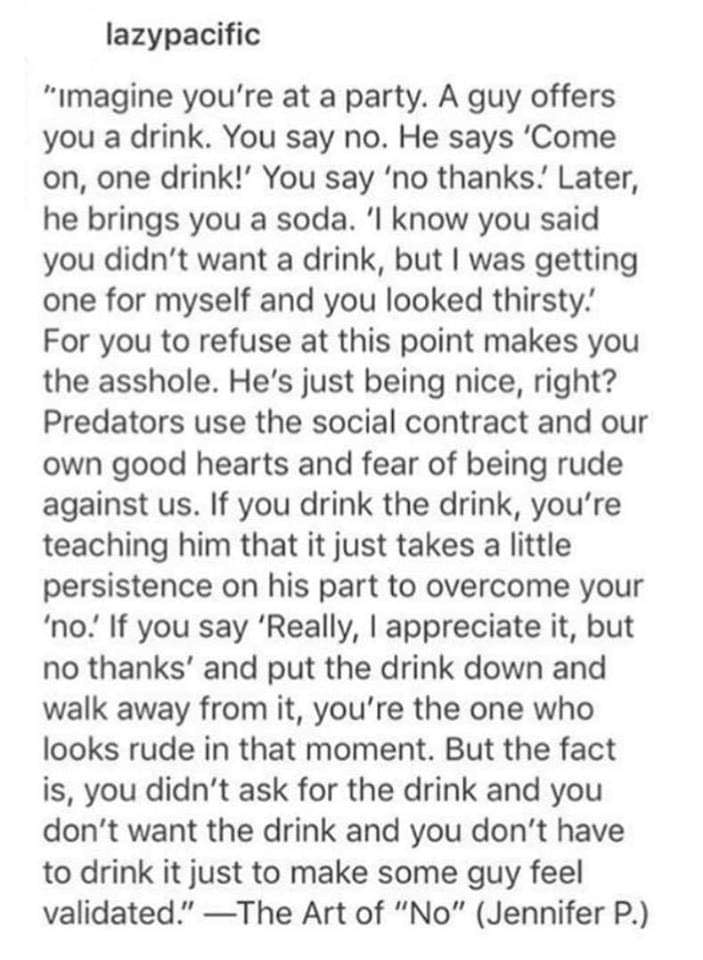
We’ve talked before about creeps – those people who raise the hair on the back of your neck and make you uncomfortable, but you can’t quite describe what it is about them that’s wrong. It doesn’t matter that everyone else seems to think they’re perfectly fine, even nice. You just know that you don’t like them, that you don’t want to be around them, and you definitely don’t want to be alone with them. The first step to being able to stop them is to identify the specific behavior that is problematic to you.
The pic here describes one of those situations. It’s used here to talk about predators and you might feel that that’s a strong word to talk about the guy who most folks call socially awkward, but part of the point is that there’s sometimes only a small step between creep and predator. Sometimes that step is only what a person is willing to call “that guy” and what we can prove that guy has actually done, when someone’s let him go too far. And the difference between socially awkward and creep? Some of it is encompassed in the interaction here.
There’s a difference between giving someone unwanted attention, and continuing to give it after they have communicated that they don’t want that attention. Socially awkward would be giving that unwanted attention, then perhaps being embarrassed by the rejection or not understanding it for what it was, but once the rejection became clear, stopping. See how it’s not quite the same as hearing no, hearing no again, then just overriding the no entirely by doing what she said no to? Or calling her rude by her rejection of your action?
Folks will argue occasionally that women like to play hard to get, or that they feel like they’d be seen in some negative light by saying yes right away. That may be so. That doesn’t mean a person has the right to assume a meaning that is not clearly stated. There are times and situations where it might make sense to ask her if she’s sure she meant no, but that doesn’t extend to badgering her or just straight up acting as if she didn’t, or being offended if she becomes increasingly strident in her no. Yes, it’s true that social interactions can be hard and complicated, and it’s frustrating when it seems like rejection is everywhere, but not respecting someone’s wishes and yes, being a creep, is not what will help them go more smoothly.
Because here’s the thing, boundaries matter. When I say no, I don’t want you do to something for me, I’ve drawn a line. Even if it’s something so minor as not wanting you to get me a drink, I’ve said that I don’t want you in my life in that way. If you continue to push at that boundary and try to pressure a change, it makes me wonder what other lines I may have that you don’t want to cross. And that’s a red flag. That’s what makes someone feel like a creep.
So in your life, when you think you’ve identified a creep around you, think about the boundaries you have stated to them and think about how they’ve nudged up against them over and over again. If you find that person who keeps pushing for a yes when you’ve said no, you’ll be on your way to being able to push back harder with your no.
Want more details about how that works? I’ve recommended before and recommend again the short read, Creepology (affiliate link: https://amzn.to/2KkXtkE).
PS: The flip side here? We are responsible for saying no when we mean no, and saying yes when we mean yes.




